Marta Andres de Miguel (Principal Investigator)
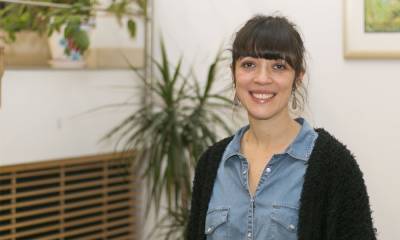
I started my research career as a PhD student investigating the development of sensory organs Drosophila at the Universidad Autónoma in Madrid (Spain) with Inmaculada Canal and Laura Torroja.
I then joined the lab of Martin Goepfert at the University of Goettingen (Germany) as a postdoc and was captivated by the complexity of mosquito ears. These fantastic sensory organs allowed me to merge two passions, neuroscience and the control of infectious diseases. To improve my knowledge on the applied science of mosquito control, I completed a MSc in Infectious Disease at the London School of Hygiene and Tropical Medicine (United Kingdom) and worked as a research fellow in the Department of Infectious Disease Epidemiology at the Robert Koch Institute. In 2017, I joined the lab of Joerg Albert at University College London (United Kingdom) as a Marie Curie fellow to investigate the physiology of the malaria mosquito ear.
In 2019, I was awarded a UKRI Future Leaders Fellowship, a fantastic opportunity to develop my independent research career and study how biogenic amines modulate the mosquito auditory perception.
David Ellis (Postdoc)
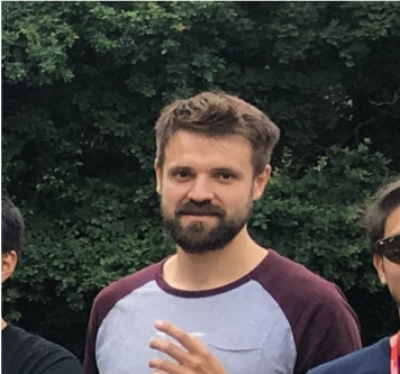
I undertook my PhD in the laboratory of Jürg Bähler at UCL where I used various genome-wide and molecular biology approaches to study ageing populations of cells.
During my first post-doc in the laboratories of Niki Windbichler and George Christophides at Imperial College, I helped develop anti-malarial synthetic gene-drive systems in mosquitoes.
Currently, I am working as a post-doc with Marta, trying to understand the role of different neuroactive molecules on the mosquito auditory efferent system - a neuronal system that has not been found in any other insect - and the way this impacts swarming behaviour. Having already had a taste of both the basic and the applied sciences, this project merges the two, allowing me to study the fascinating sensory biology of an important disease vector, and potentially identify control tools along the way.
Judit Bagi (Technician)
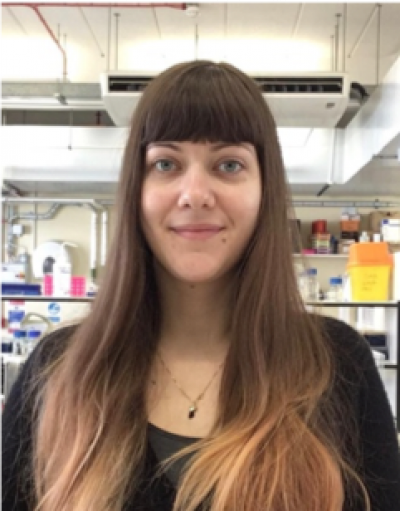
Judy’s first experience working with mosquitoes was during her BSc degree in Medical Genetics at Queen Mary, where she worked on transposable elements in Anopheles stephensi.
She continued her studies in molecular entomology at the Liverpool School of Tropical Medicine, where her MSc research project looked into the mechanisms of insecticide resistance of An. arabiensis and An. gambiae in Zanzibar. The combination of working in the field of molecular biology and addressing vital questions of vector control made her following technical post at LSTM very exciting.
Her goals of providing technical support and entomological husbandry resulted in another technical post working with bumblebees at Royal Holloway, where she aided research looking into pollinator viruses and their transmission. After completing her post at RHUL, she now works at UCL with Joerg Albert and Marta Andres, providing technical support in mosquito rearing, molecular work and general lab management, working towards vector population control from a new, less chemically invasive method. She is keen to continue her work in disease vectors and feels her career trajectory of molecular entomology will involve further work in developing mosquito management methods for the field.
Scott Thytheridge (Technician)
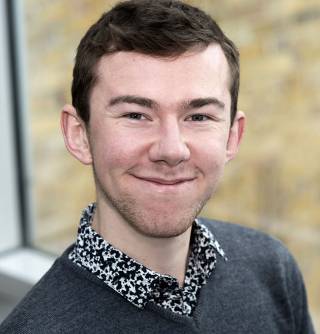
My career in medical entomology began when I undertook an MSc in Medical Entomology for Disease Control at the London School of Hygiene and Tropical Medicine. For my dissertation I conducted a field study to determine suitable mosquito larval sites as targets for vector control on the Bijagós archipelago, Guinea Bissau using spatial regression analyses.
After a brief period teaching diagnostic parasitology, I moved into contract research, working at ARCTEC in the London School of Hygiene and Tropical Medicine.
There, I gained a role as an assistant trial manager, managing various clinical and non-clinical projects involving mosquitoes, bedbugs, and biting midges in a range of experiments from insecticide testing to transmission experiments.
From there, I took up a post in James Logan’s group investigating the underlying mechanisms of host attraction in Anopheles using capillary-column gas chromatography, behaviour olfactometry, and microbiomics.
I am now based in Marta’s group at the UCL Ear Institute in a technical, laboratory role. Here, I maintain transgenic and reporter lines of mosquitoes, and conduct phonotaxis and trikinetic experiments on them to understand how biogenic amines, and a unique efferent system modulate mosquito swarming behaviour.
Daniela Terrazas Duque

Since then my interest in research and its role in the advancement of the sciences has been of great importance to me.
I have always been interested in the biomolecular processes that occur in all living organisms and the way they explain different phenomena. Currently, I am working as a visiting student with Marta, at the Ear Institute, trying to understand and explain the role of octopamine in the malaria mosquito Anopheles gambiae hearing and mating behavior, as well as its circadian regulation. The further understanding of these mechanisms could open new possibilities for insecticide targets. This project allows me to explore new and uncommon areas of medicine and biology which I will, hopefully someday, be able to exploit in a country greatly affected by vector-borne diseases like Mexico.
Elizabeth Freeman
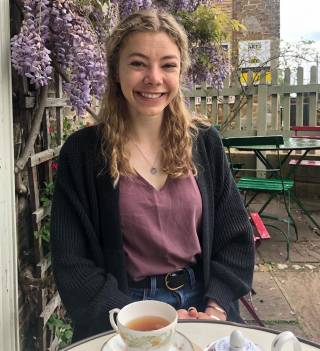
Prior to starting my PhD, I completed my MPH in 2021 at the Colorado School of Public Health. During my MPH, I developed a passion for vector-borne diseases, working in West Nile Virus control for Larimer county and as a data scientist for a Lyme disease foundation.
My previous research has focused on community engaged vector control with one project updating maps of the distribution of Dermacentor ticks in Colorado using tick submissions from individuals around the state and another project modelling potential Aedes aegypti habitat in West Africa using data from the citizen science mobile phone app GLOBE Observer.
For my PhD, I am researching the molecular basis of swarming behavior in mosquitoes to better understand the vector that spreads malaria, Anopheles gambiae.
Alumni - Msc Students
Calila Cruickshank
 Close
Close

